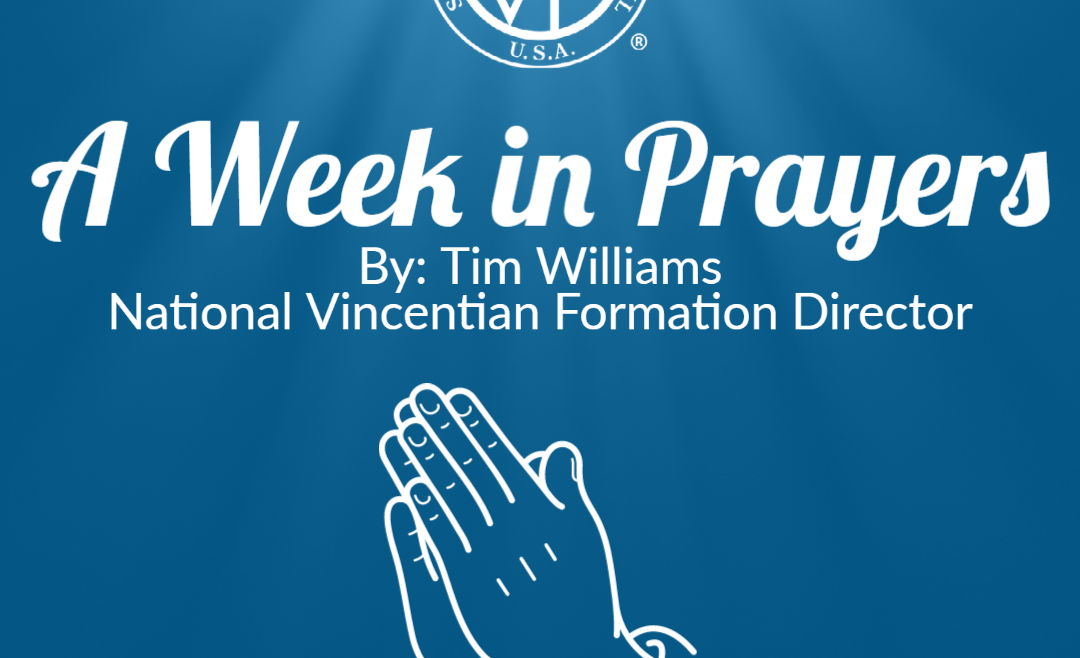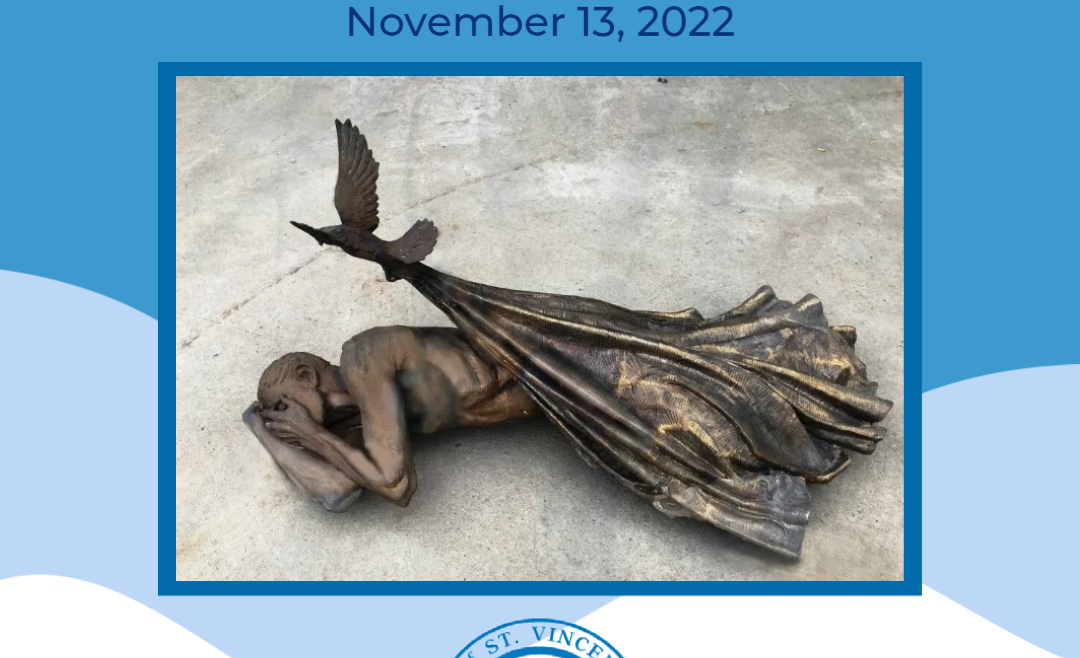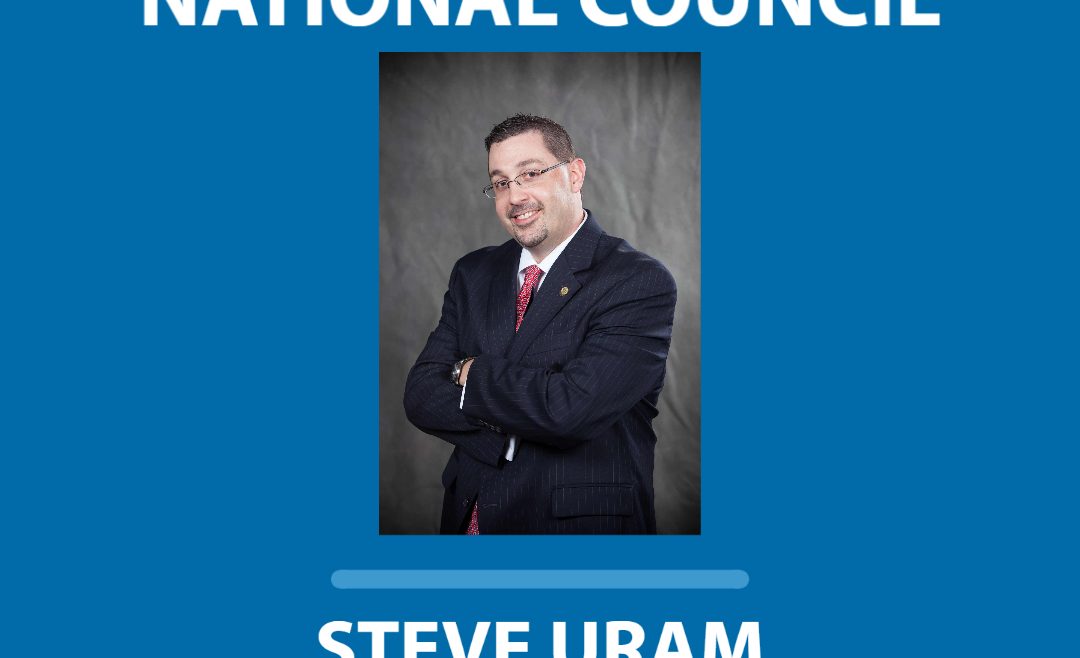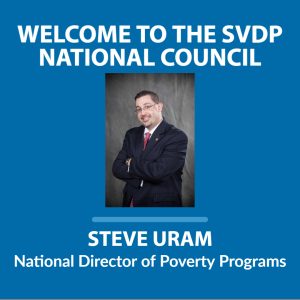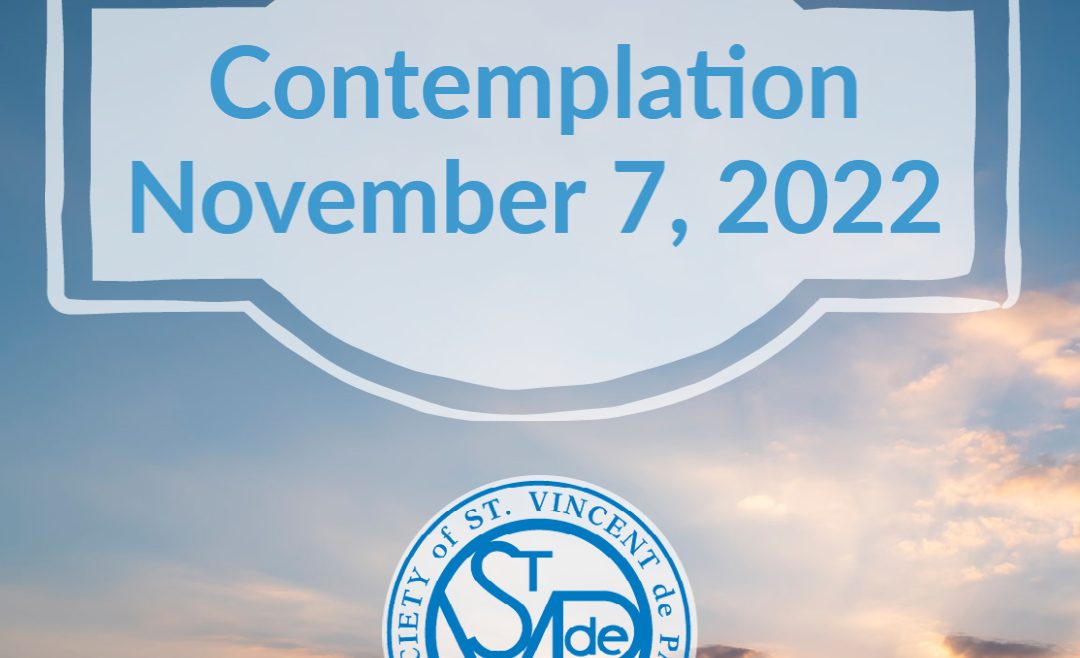Monday, November 7
This is the day You have made, O Lord,
No greater joy could I have!
All that I see, each person I meet,
Is a gift from Your loving hands.
Amen
Tuesday, November 8
My Lord and my God,
Creator of all,
Thank you all Your gifts:
My talents, my successes,
My possessions,
My frailties, my faults,
And my weaknesses.
To serve You and the neighbor,
All these are enough.
Amen
Wednesday, November 9
O Lord, grant Your blessings
On all whom I serve,
Whose troubles have brought them to me.
Give me ears that hear them,
Eyes that see them,
Hands that serve them,
And a heart that loves them.
Let them know Your love
And Your promise
Through my works.
Amen
Thursday, November 10
Lord Jesus, the vine,
From Whom I shall grow,
As a one of many branches,
Through the strength of my arms,
And the light of the Spirit,
May my works bring forth
Your fruit.
Amen
Friday, November 11
Lord God, animate me,
Open me up to Your will.
Fill my heart with the Holy Spirit,
Give me the mind of Jesus.
Your servant is listening, Lord,
And seeks only to serve You.
Amen

